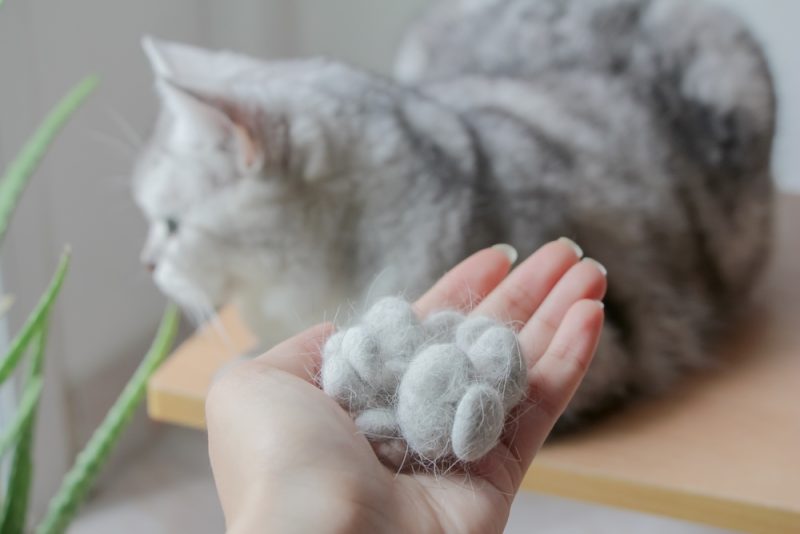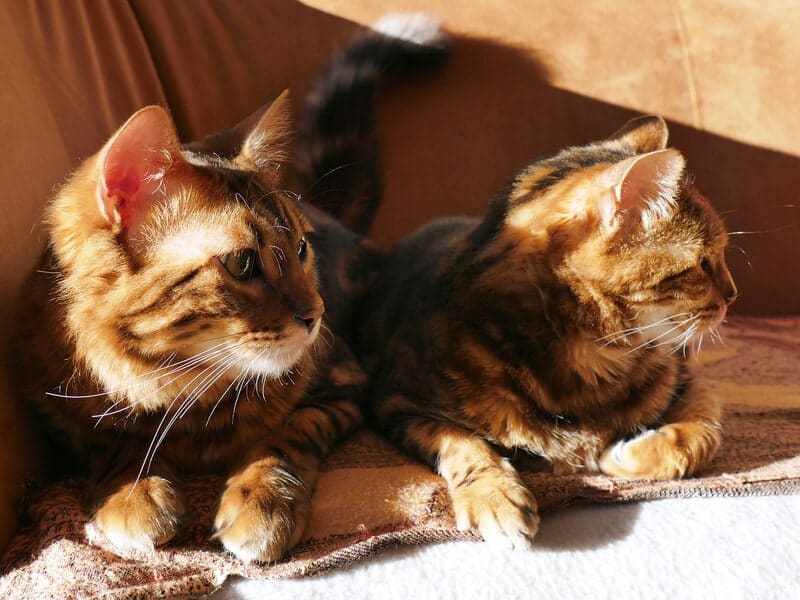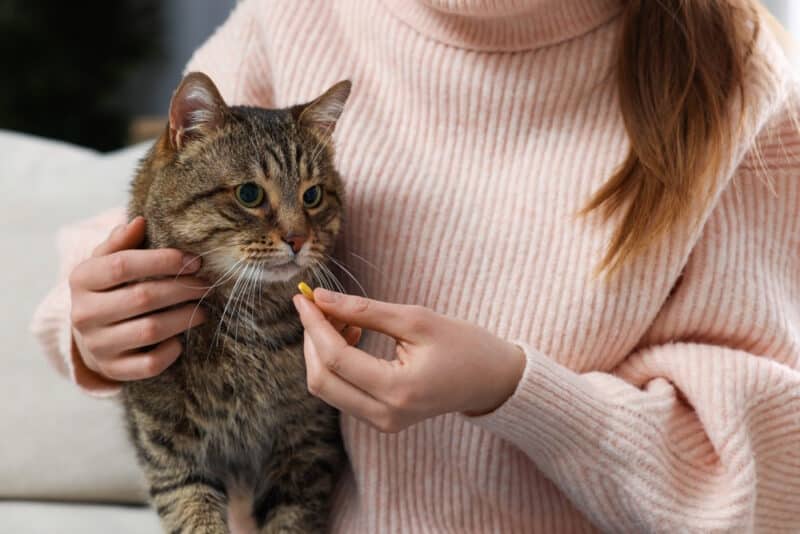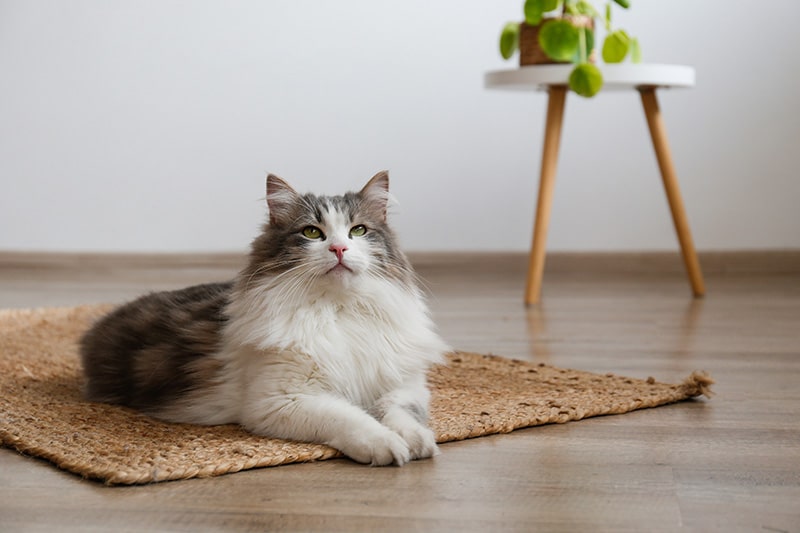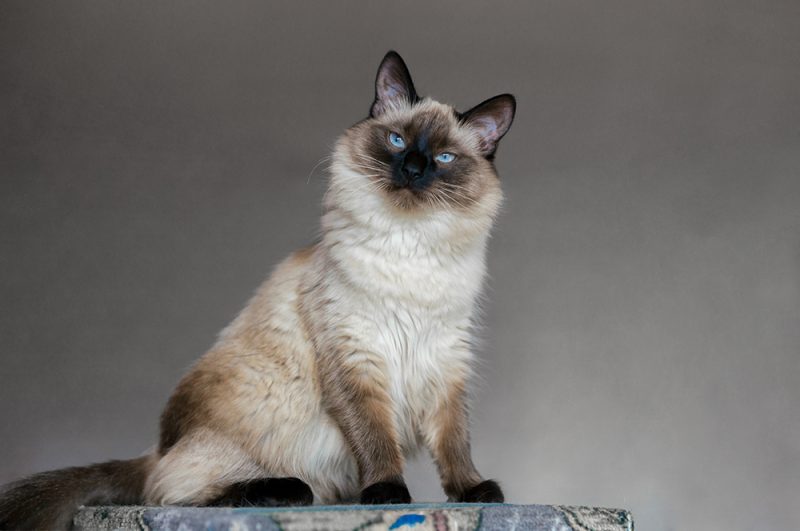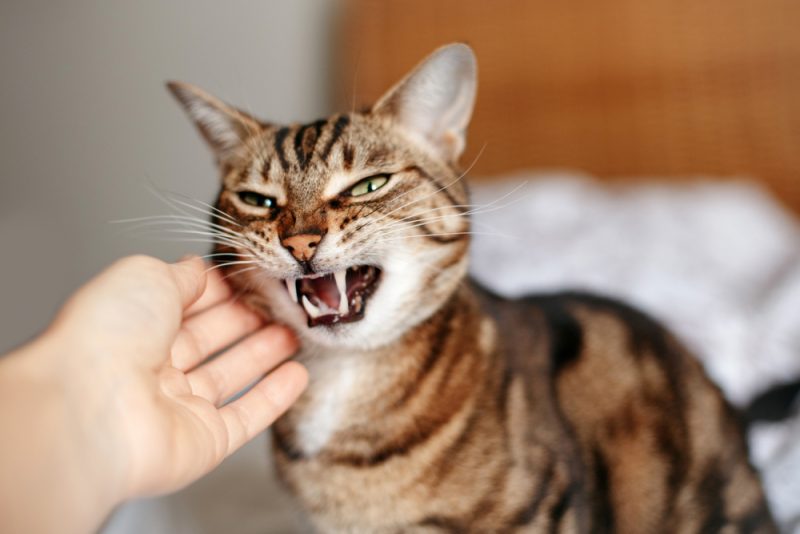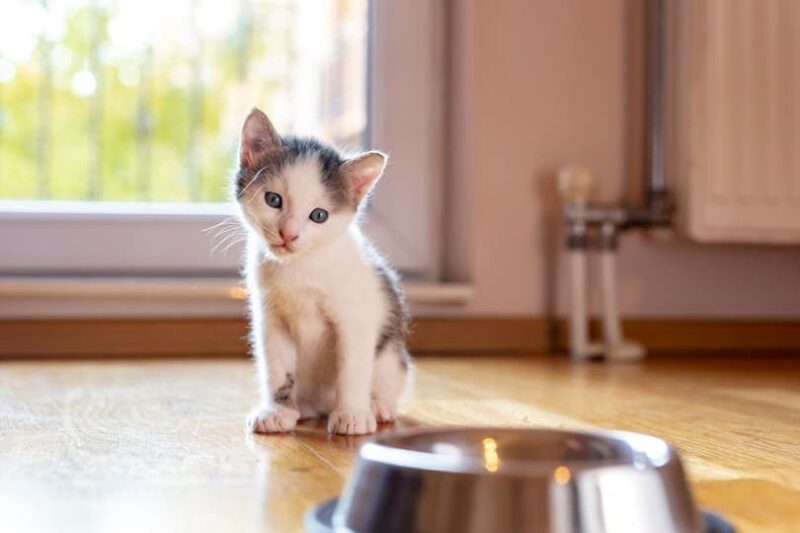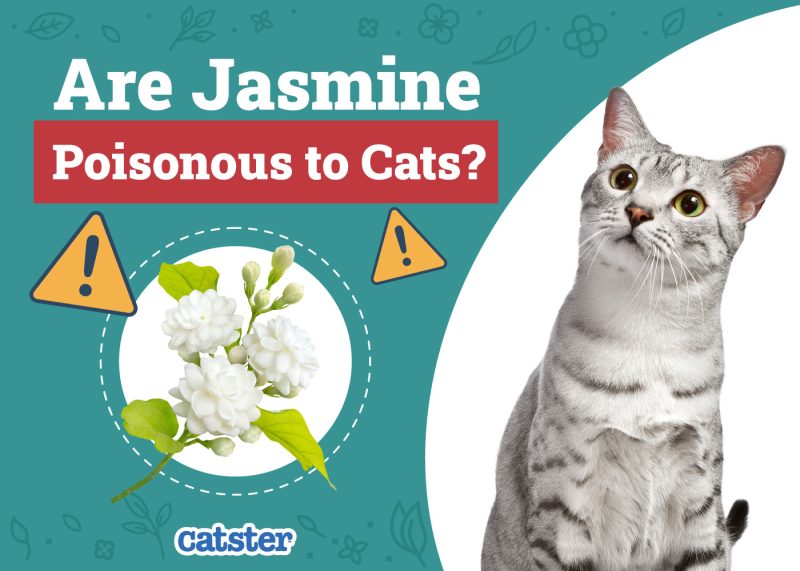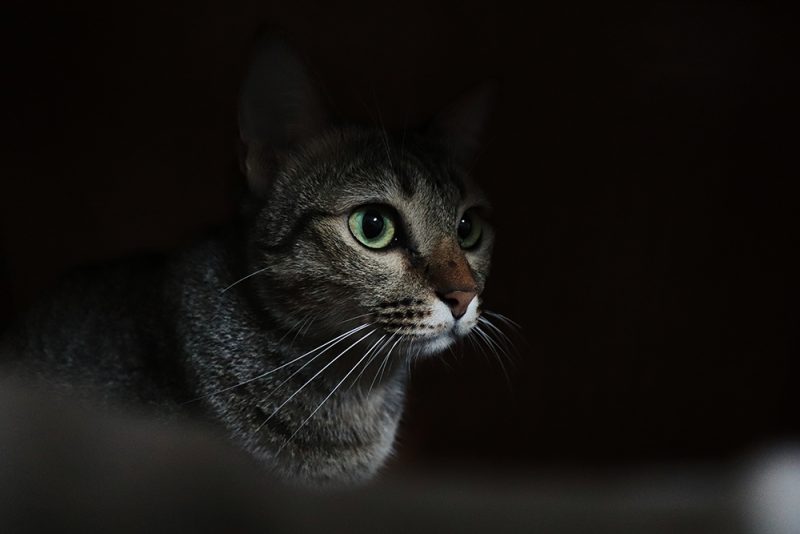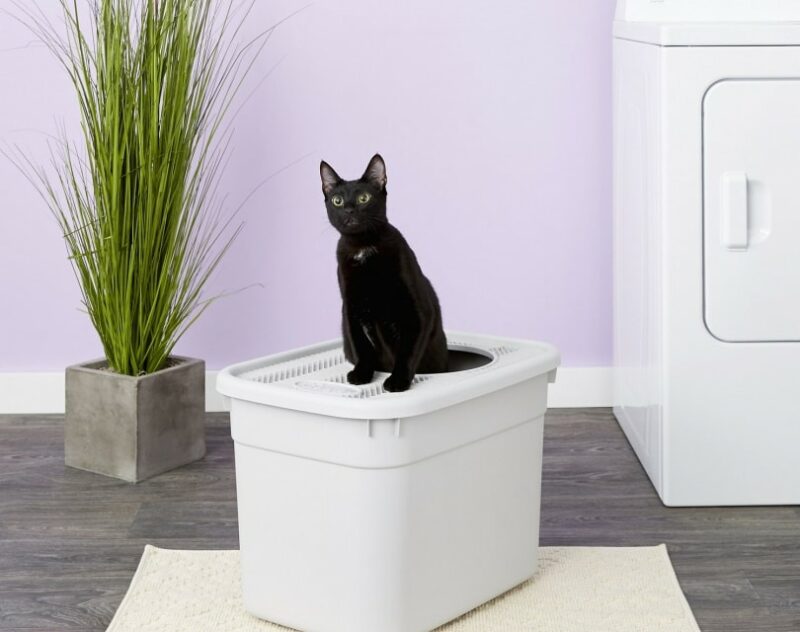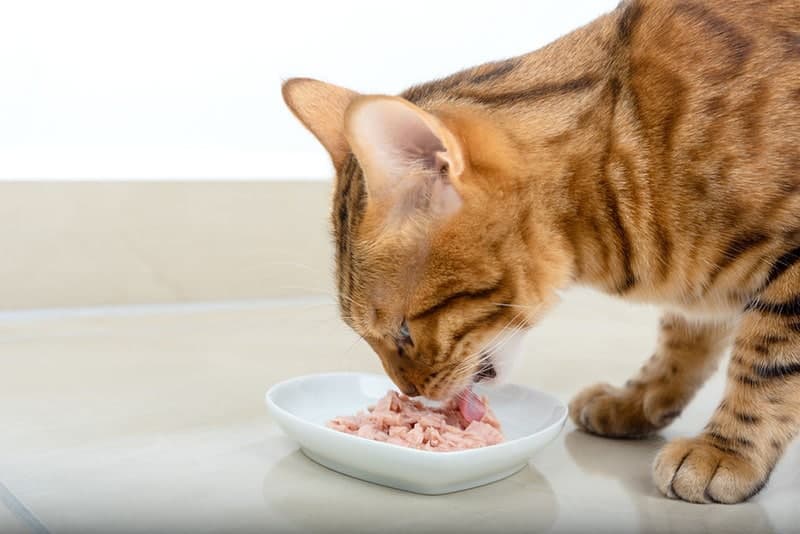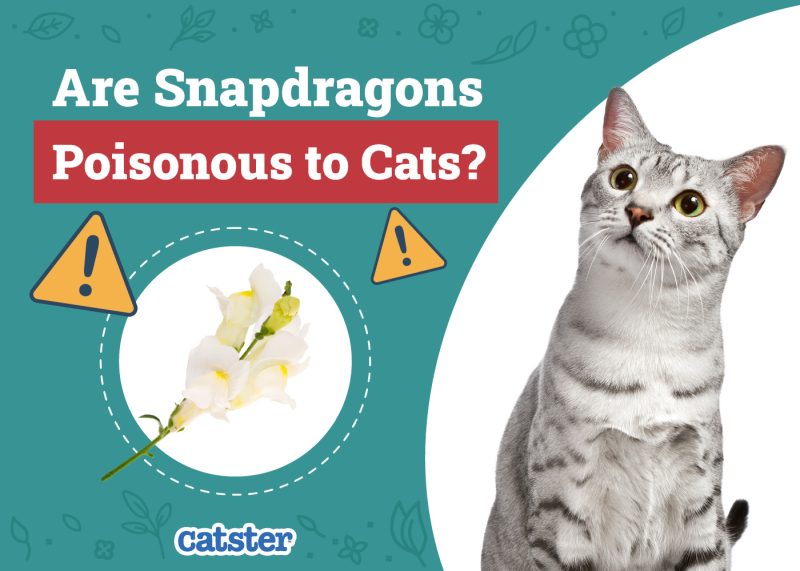Cats can spend up to 50% of their day grooming themselves. They do it primarily to keep themselves clean, but grooming also helps regulate their body temperature and spreads oils through their coat, to name a few reasons. Cats also tend to groom each other for bonding purposes. However, grooming can become excessive and/or troublesome for various reasons.
For example, a cat might start to pull their own hair out. If you notice that your cat is doing this, you’re likely wondering why and whether it’s something to worry about. There are a few reasons that your cat might be pulling out their hair. What to do about it depends on the cause.

How to Know If Your Cat Is Excessively Grooming and Pulling Out Their Hair
It can be tough to tell whether your cat is grooming themselves to the point that they’re pulling out hair. Just because you find a patch of fur on the ground doesn’t necessarily mean your cat has a problem with pulling their hair out. However, if you’re finding multiple chunks of hair lying around where your cat has been grooming themselves, chances are that there is a hair-pulling problem to address.
Another sign that your cat is excessively grooming is that they start to develop patches of baldness and/or obvious hair loss all over their body. Even one bald patch is cause for concern. Excessive furball regurgitation is another sign of excessive grooming. Finally, you might simply notice that your cat is grooming more often than usual.
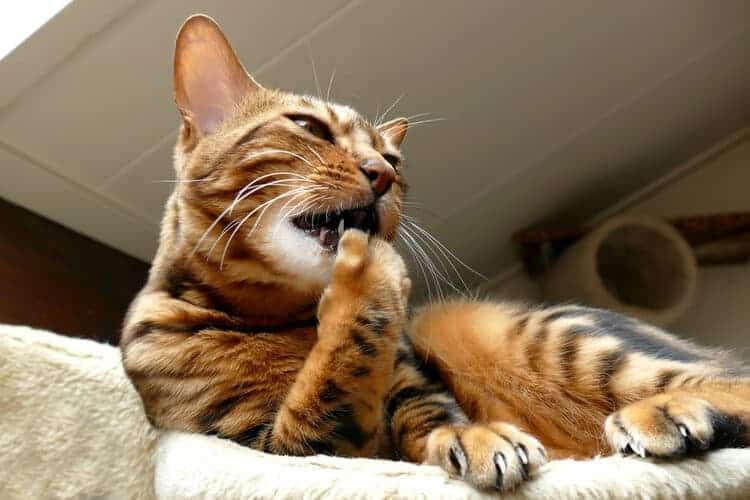
 The 7 Reasons That Your Cat Is Pulling Their Hair Out
The 7 Reasons That Your Cat Is Pulling Their Hair Out
1. Fleas and Flea Allergies
Fleas in general cause skin itchiness in felines, which can result in excessive grooming and hair loss. Even indoor cats can get fleas, and it doesn’t take many of them to cause problems. Unfortunately, it can be tough to rid a kitty of fleas and alleviate their itchiness. Flea treatments are necessary immediately, and monthly ongoing ones are required to keep the pests away for good. A veterinarian can recommend an effective flea control regimen.
Some felines develop flea allergy dermatitis, which basically means they are allergic to flea saliva. The most common manifestation of flea allergy dermatitis is skin itchiness. As your cat itches their skin, they pull hair out in the process. The solution to this problem is to prevent flea infestations through regular veterinary-prescribed flea treatments.
If you need to speak with a vet but can't get to one, head over to PangoVet. It's an online service where you can talk to a vet online and get the advice you need for your pet — all at an affordable price!

2. Other Allergies
Cats may develop allergies at any time during their life. Allergens include foods, pollen, and house dust mites. Unfortunately, many cat allergies cause skin itchiness that can result in overgrooming and hair loss. Veterinarians will follow a step-by step approach to investigate possible allergies, as the signs can be similar to many other skin conditions. From there, a plan for allergy relief and maintenance can be created.
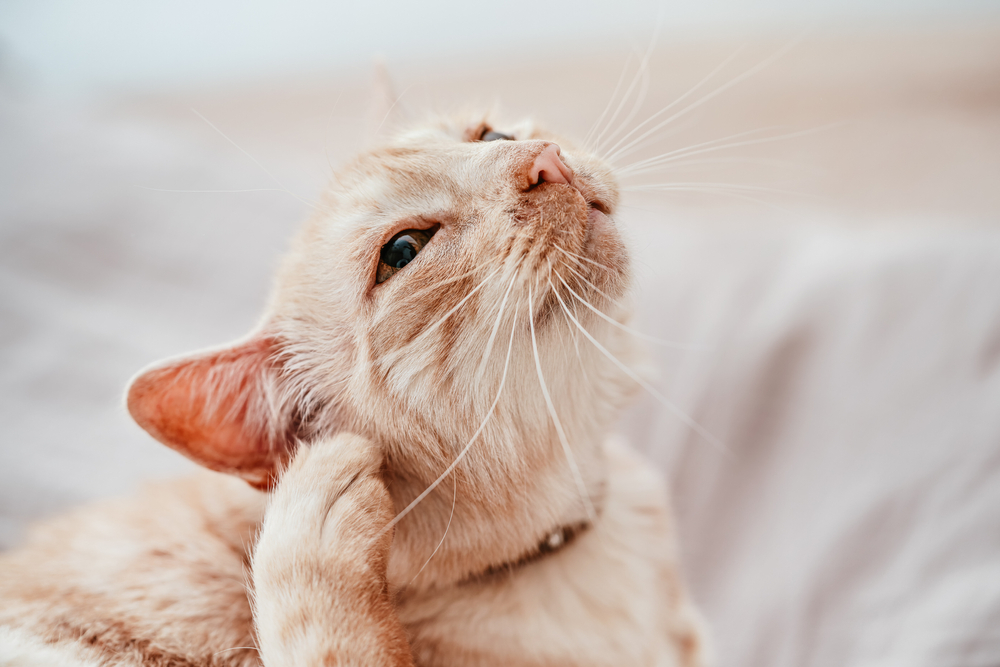
3. Mites
Mites are tiny parasites that infest the skin and hair follicles of cats, which typically leads to problems like skin irritation, redness, itching, and even hair loss. Cheyletiella and demodex are two types of mites that can affect a cat’s skin. Demodex mites can be harder to detect because they live within the hair follicles, whereas cheyletiella mites live on the skin’s surface.
4. Ringworm
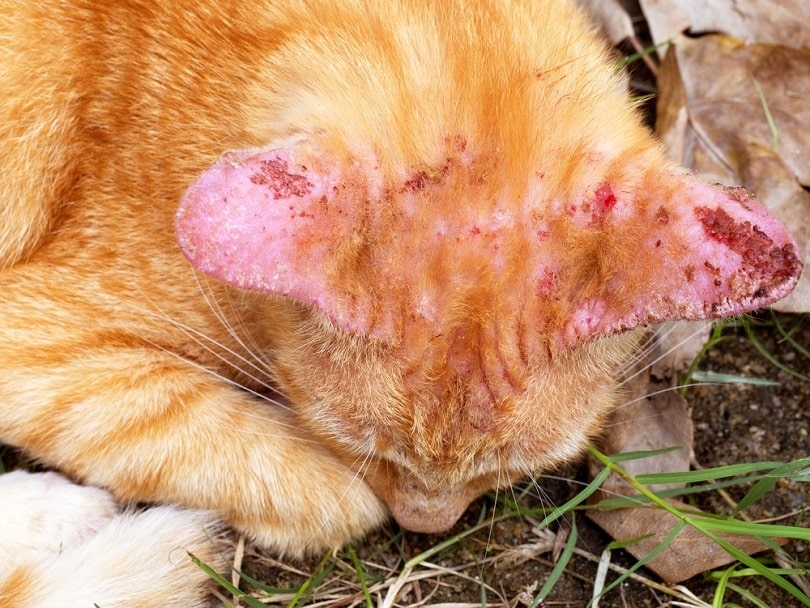
While ringworm might sound like a parasite, it is actually a fungal skin infection that can cause hair to fall out. These bald patches are often scaly and sometimes look red and inflamed. It might seem like your cat is pulling their hair out, but it’s the fungal infection causing the hair loss. Ringworm is usually diagnosed by fungal culture of a sample of the hair and scale. Your veterinarian may recommend topical washes and oral medication to treat the infection.
5. Stress and/or Anxiety
Psychological problems like anxiety and stress can cause self-inflicted hair loss in felines, as they will try to find relief through chewing, pulling, and excessively grooming their hair. Moving to a new home, introducing a new animal or baby to the family, being boarded for a period, and even competing with other cats in the household can all cause stress and/or anxiety in a feline.
This psychogenic overgrooming is much less common than other causes of similar signs such as allergy. It is imperative to rule out other causes of overgrooming and then try to figure out the cause of the stress or anxiety so it can be addressed and eliminated if possible.
6. Boredom

In a similar way to stress causing overgrooming, boredom can also cause a cat to pull their hair out, although this is also an uncommon cause of the problem. Cats are intelligent and a lack of environmental and mental stimulation can produce feelings of depression and overall lethargy. So, a feline might try to relieve these feelings by overgrooming and pulling out their hair.
Introducing new stimulants, such as cat scratchers, towers, caves, and toys, can help greatly reduce a cat’s boredom and correct their overgrooming and hair loss problem. If the issue persists, a trip to the veterinarian to rule out other possible causes of the hair loss is a good idea.
7. Pain
Unlike humans, cats cannot verbally tell anyone when they are in pain. They try to keep their pain a secret because in the wild, it would be perceived as weakness by predators and enemies. Therefore, you might not notice many signs of pain in your cat, but excessive licking that causes hair loss is something that shouldn’t be overlooked.
Causes of pain could be anything from arthritis to an infection or injury. Diagnosing the reason for the pain is the first step in alleviating it, along with the hair loss and any other problems.

Conclusion
There are several reasons that a feline might be pulling out their hair. The key is to determine the exact reason for it. You will need the help of a veterinarian to diagnose the cause so it can be effectively addressed and avoided in the future.
Featured Image Credit: jajam_e, Shutterstock
